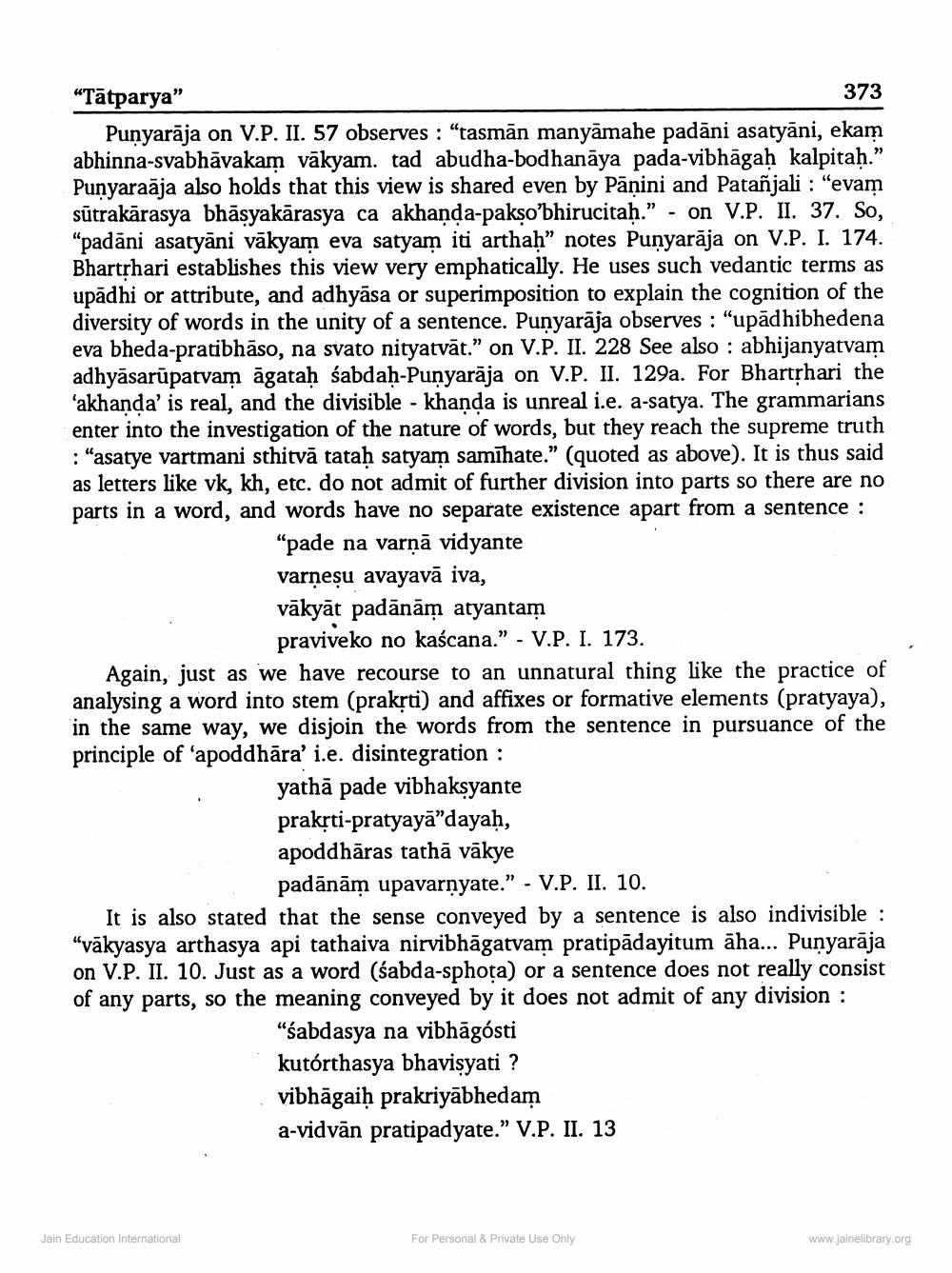________________
"Tātparya"
373 Punyarāja on V.P. II. 57 observes : "tasmān manyāmahe padāni asatyāni, ekam
bhāvakam vākyam. tad abudha-bodhanaya pada-vibhāgah kalpitah.” Punyaraāja also holds that this view is shared even by Pāṇini and Patañjali : “evam sūtrakārasya bhāsyakārasya ca akhanda-pakso'bhirucitah.” - on V.P. II. 37. So, “padāni asatyāni vākyam eva satyam iti arthah” notes Punyarāja on V.P. I. 174. Bhartrhari establishes this view very emphatically. He uses such vedantic terms as upādhi or attribute, and adhyāsa or superimposition to explain the cognition of the diversity of words in the unity of a sentence. Punyarāja observes : "upādhibhedena eva bheda-pratibhāso, na svato nityatvāt.” on V.P. II. 228 See also: abhijanyatvam adhyāsarūparvam āgatah sabdah-Punyarāja on V.P. II. 129a. For Bhartrhari the 'akhanda' is real, and the divisible - khanda is unreal i.e. a-satya. The grammarians enter into the investigation of the nature of words, but they reach the supreme truth : "asatye vartmani sthitvā tatah satyam samīhate.” (quoted as above). It is thus said as letters like vk, kh, etc. do not admit of further division into parts so there are no parts in a word, and words have no separate existence apart from a sentence :
"pade na varnā vidyante varņeșu avayavā iva, vākyāt padānām atyantam
praviveko no kaścana.” - V.P. I. 173. Again, just as we have recourse to an unnatural thing like the practice of analysing a word into stem (prakrti) and affixes or formative elements (pratyaya), in the same way, we disjoin the words from the sentence in pursuance of the principle of 'apoddhāra' i.e. disintegration :
yathā pade vibhakşyante praksti-pratyayā"dayaḥ, apoddhāras tathā vākye
padānām upavarnyate." - V.P. II. 10. It is also stated that the sense conveyed by a sentence is also indivisible : "vākyasya arthasya api tathaiva nirvibhāgatvam pratipādayitum äha... Punyarāja on V.P. II. 10. Just as a word (śabda-sphota) or a sentence does not really consist of any parts, so the meaning conveyed by it does not admit of any division :
"sabdasya na vibhāgósti kutórthasya bhavisyati ? vibhāgaiḥ prakriyābhedam a-vidvān pratipadyate.” V.P. II. 13
Jain Education International
For Personal & Private Use Only
www.jainelibrary.org




